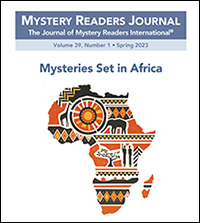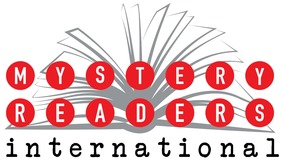Mystery Readers Journal: Africa (39:2) has been postponed until 2023, but I just had to post this essay that Akbar Hussain has written for that issue. I loved Truth is a Flightless Bird. It's an amazing debut, powerful and sad, and beautifully written. ***
AKBAR HUSSAIN: A Brutal Love Letter Akbar Hussain
Liminal.
A pompous word, a ‘literary’ word. And, although I have been accused of many things, I can look anyone in the eye and say: ‘Never have I ever used this word.’
Yet here I am beginning this piece with it.
Why?
Because I love words, and believe in economy and precision.
And so I say, Kenya is (for me) a liminal place – inasmuch as I entered it one way, and left it (8 years later) entirely different.
For never had I lived in such a fluid, youthful society, where the weight of identity was carried so lightly (I grew up in Switzerland, Canada and India – and had not really been aware of the creeping cost of having to ‘belong’ – the subcutaneous and constant decisioning of what identity elements to keep, discard, dial up/down).
Even allowing for the considerable expatriate privilege I enjoyed while in Kenya (my partner works for the UN, hence our posting from NY HQ to Kenya), the lightness of being able to reinvent oneself, to look upon oneself anew, and to have those around you acknowledge that, was giddying.
It was in Kenya, that I rediscovered the boy I had been, the lover of the outdoors, the teller of stories – and took bright-eyed stock of the curiosity which had been leached from me somehow by the demands of my work (corporate lawyer on Wall Street, I know, what did I expect…) and my setting (urban Brooklyn). And that boy, he had always been writing, had filled many notebooks with adolescent poetry, sketches and stories (not good, in the harsh light of day, I’m afraid).
And so I found myself jobless (by choice) and stay-at-home parent to our toddler daughter (to whom, incidentally, my novel Truth is a Flightless Bird is dedicated – but more on that later…), blinking at this new land, through both her eyes (look, a chameleon on the kitchen sink!), and my own (wow, that manhole has no cover on it!).
And I wrote. No one gave me a sherrif’s badge or gun to do this. I simply wrote discursive and self-reflective observations on how cool and strange it was to live here. Private consumption only.
A year passed, and I longed for more interaction outside the house. Our daughter was now in school all day, and I was quickly disabused of the notion that I had what it took to write all day.
I took a job as in-house lawyer for a multinational firm with offices in 17 African countries. My interactions expanded from arranging play dates, to traveling across the vast continent, working in English and French, common and civil law jurisdictions alike (happy accident, for I am bilingual and had degrees in both traditions from McGill University in Montreal). Our family grew (2 of our 3 kids were born in Kenya, and our dog Lucy as well), and my love for Kenya in general, and Nairobi in particular, took on complexity, patina. The way one gets in a more-or-less happy marriage, or with an expensive leather sofa which the dog particularly likes.
For Nairobi is, for me, a frontier town. Much remains to be done, to be written, to be built. And persons of all stripes were doing these things. There is an energy there, a sense of the possible.
But, like all frontier towns, there was a considerable shadow to this “green city in the sun” (as Nairobi is known). All was not going so well – for a lot of people. And the reach of the shadow-world was ever present. For instance, when doing pregnancy registrations at the hospital (gleaming, well-staffed), we were advised that we should privately arrange for a reliable blood donor in the event required – the hospital itself did not recommend its blood bank as there were screening difficulties.
Of course, these were very first-world issues, and so I began to delve into what others might be experiencing. I knew that, just beyond my sun-dappled garden and coffee bars, there was another world. And the boundary between the two was blurry. Just how deep did the shadows run? I do not care for politics or newspapers, so where could I look?
I began with the security guard (left unnamed as a matter of security/respect) stationed outside our home’s gate (required by the UN security protocols). His brother-in-law was a detective on the Nairobi police’s ‘flying squad’ (also known as Vice Squad or Serious Crime first responders). After some persuasion, the detective allowed me to join for ride-alongs in the unmarked and unremarkable squad car.
Instructions provided were:
- Wear comfortable shoes.
- No further instructions.
At the end of a typical shift (which generally involved driving very slowly through informal urban settlements (Ok: slums), we stopped for nyama choma (a traditional Kenyan barbecue). Our tongues loosened as we sank Tusker beer after Tusker. The good detective was a terrific storyteller, and regaled us with tales of heartbroken gangsters, clumsy industrialists, and greedy schemers.
At a certain point, unable to restrain myself, I drew from my pocket my notebook. I was jotting away, when I noticed the laughter had stopped. Even the music seemed to have ceased.
The detective sighed, leaned back in his plastic garden chair, yawned extravagantly. Then reached back and withdrew his revolver – enormous, shiny. Placed it on the table, then held out one enormous palm wordlessly. I handed over my notebook, sheepish and abject with my apology. A spell had been broken, and we clambered back into the car and drove through shadowed bylanes, my shame precluding any further conviviality.
Confiscated notebook notwithstanding, this was the Nairobi I wanted to explore, to recount, to channel. The Word file of my manuscript was called, for several years, ‘Good People Doing Bad Things for Good Reasons’. The juxtaposition of high and low, extreme capitalism and the irrationally non-transactional. Many of the stories which constitute Truth is a Flightless Bird come from these places, tell the stories of those who live there.
If you read Truth, you will meet them. And you will meet Nairobi. And, if I’ve done my job, you will have a subtle and cautionary appreciation of the many luxuries we take for granted – the tap dispensing potable water, the public schools dispensing curricula to boys and girls alike, and the manholes with robust coverings.
And as we witness the systematic dismantling of institutions in many Western countries, the novel is quite zeitgeisty (the failure of bare-knuckled capitalism, the fragility of our institutions, and the inequality machine that our cities have become).
***
Akbar Hussain’s Truth is a Flightless Bird, a Kenya-based novel, has been optioned for an eight-part television miniseries. Aki is also a successful entrepreneur, co-founding a financial technology start-up while living in Nairobi. When not writing fiction or running the fintech, Aki can be found walking his labrador Lucy, with his partner and their three children. About the book:
President Obama’s impending arrival to Nairobi is the electric backdrop to this dazzling debut, Truth is a Flightless Bird. Yet, beneath the glittering celebrations, beats the pulse of a city aflame.
And it is into this crucible that Nice (real name Theresa) lands, fleeing her Somali drug-dealer boyfriend, her brutal UN work in Mogadishu, and the life choices stalking her. So desperate is she to flee that she involves one of her oldest friends, Duncan, an American pastor heading a church in Nairobi. On the way back from the airport, their car crashes, and Nice is taken.









.jpg)


